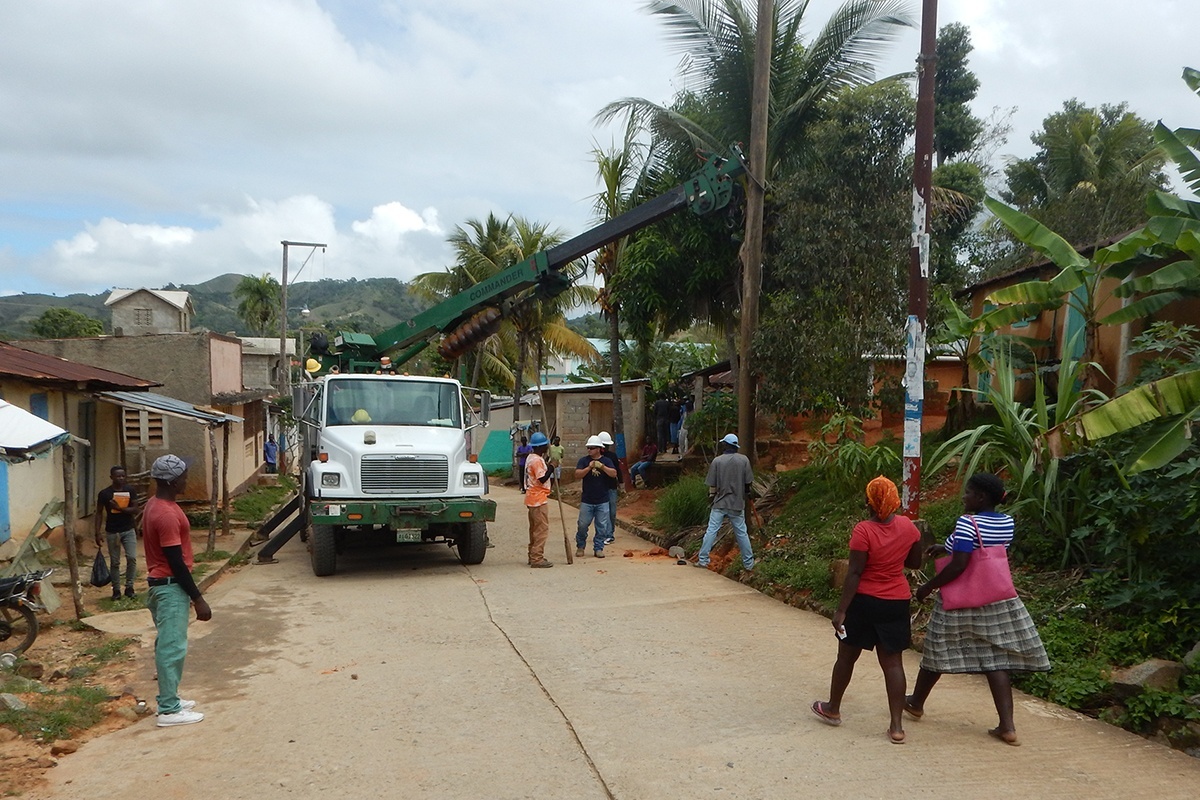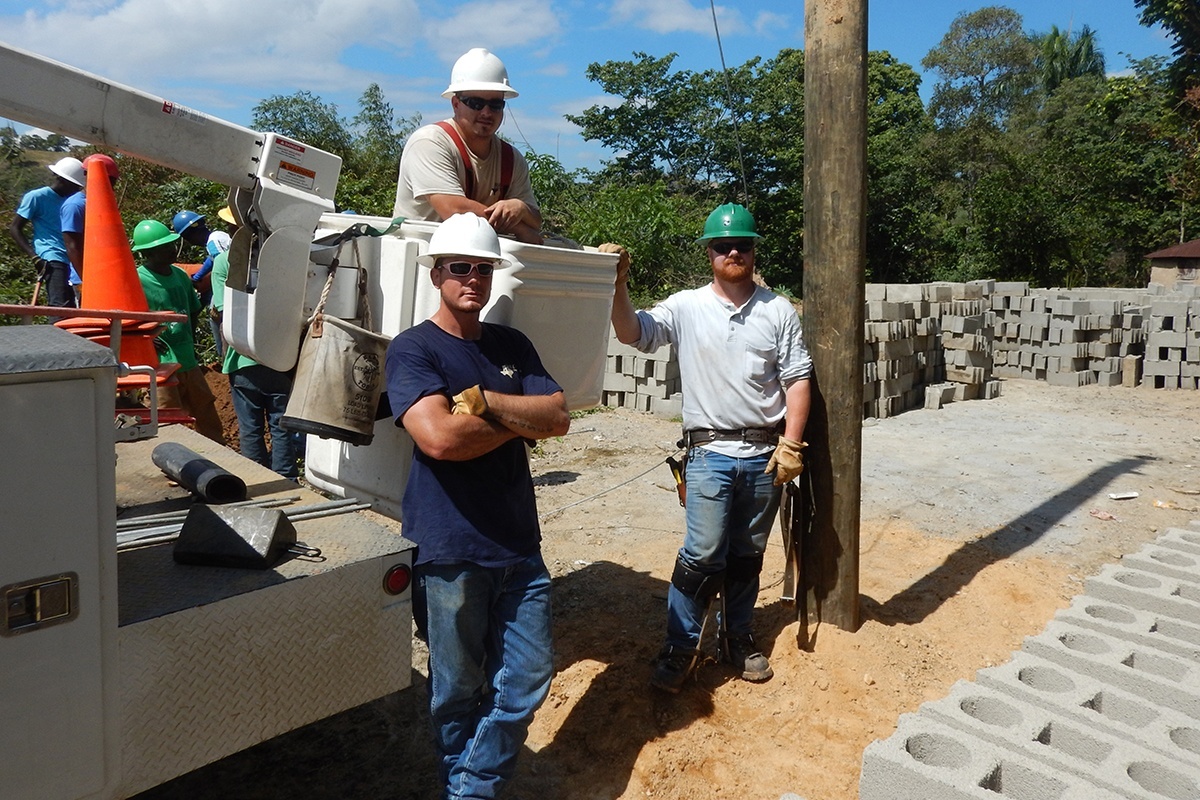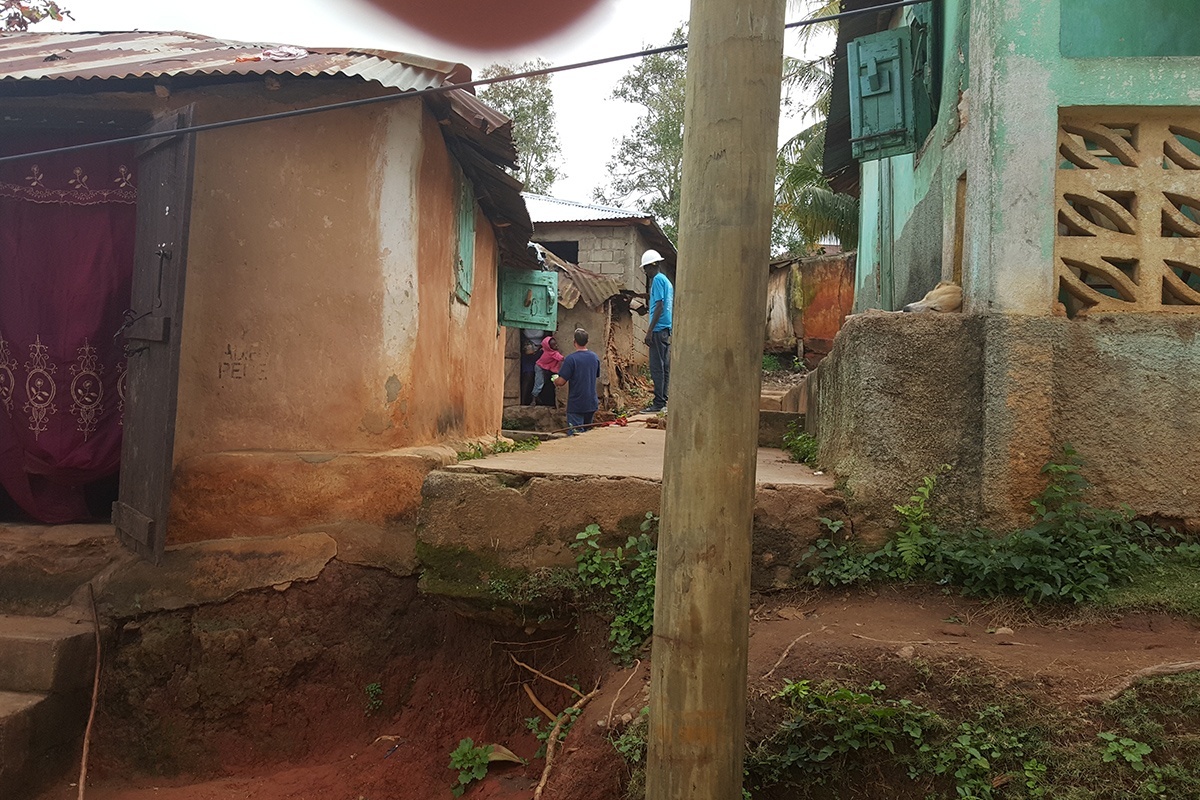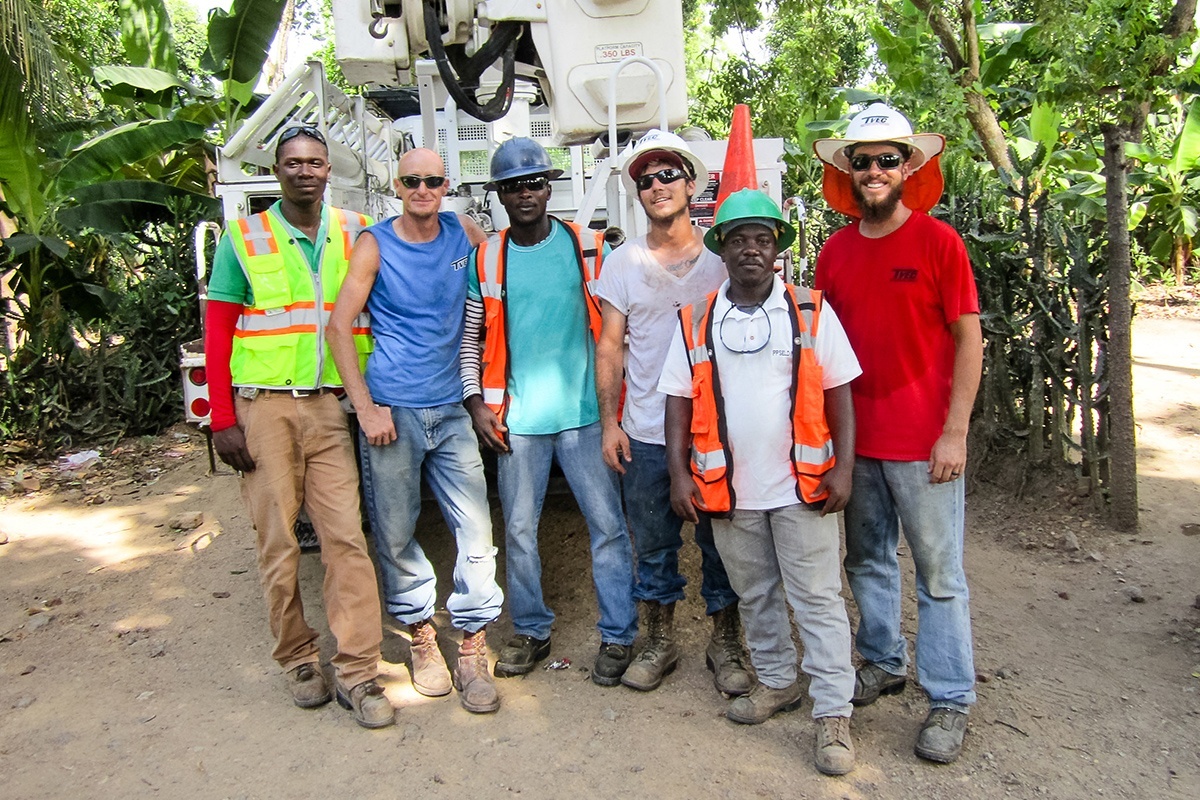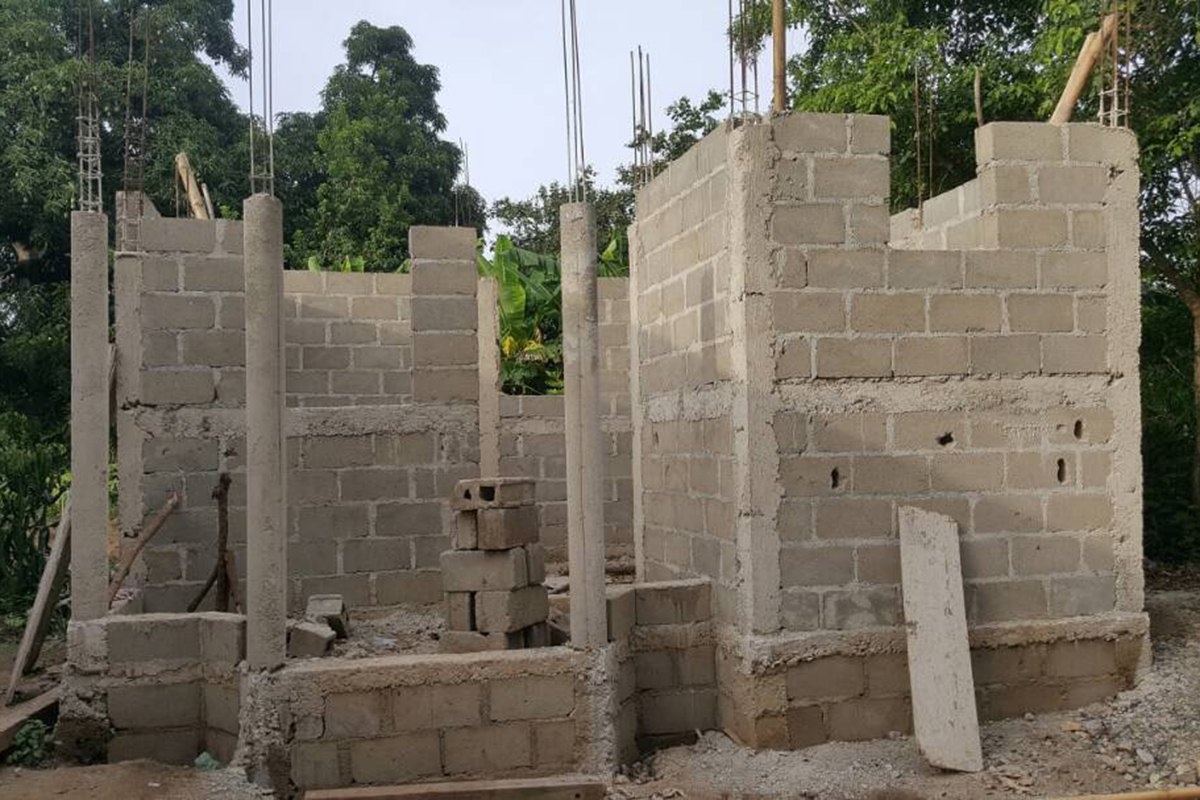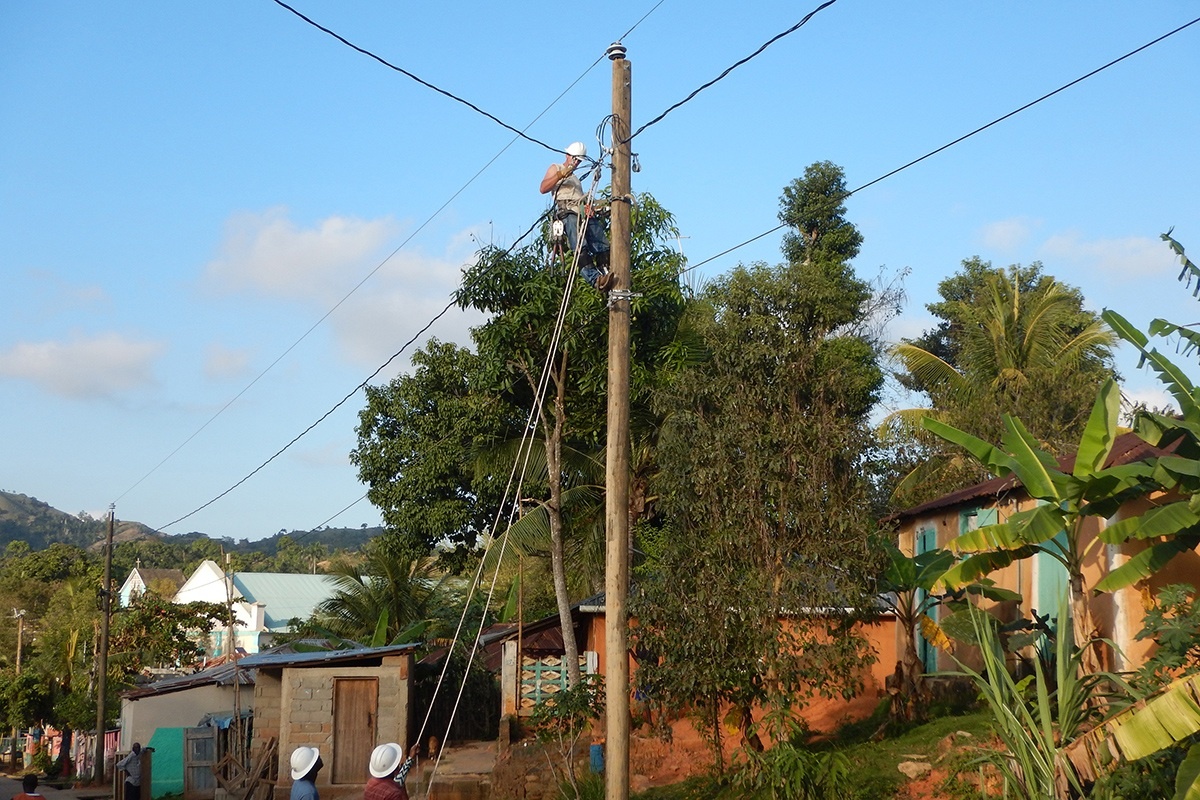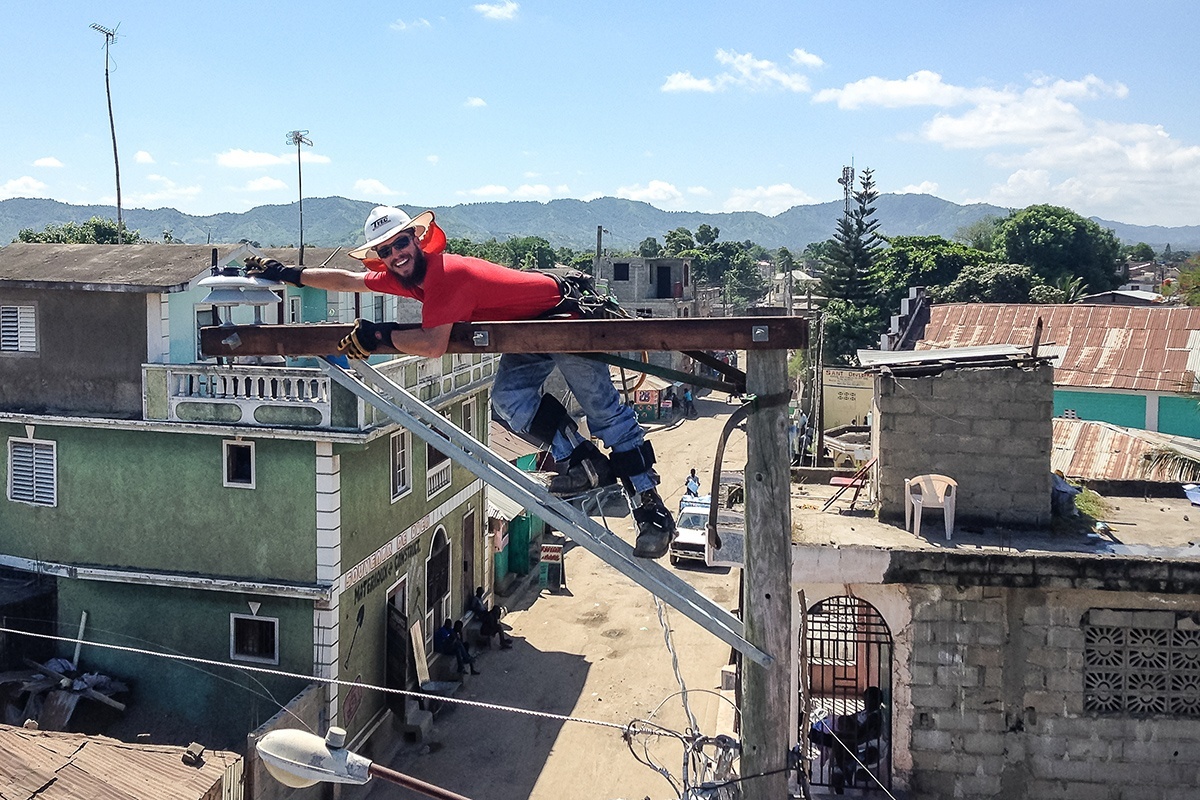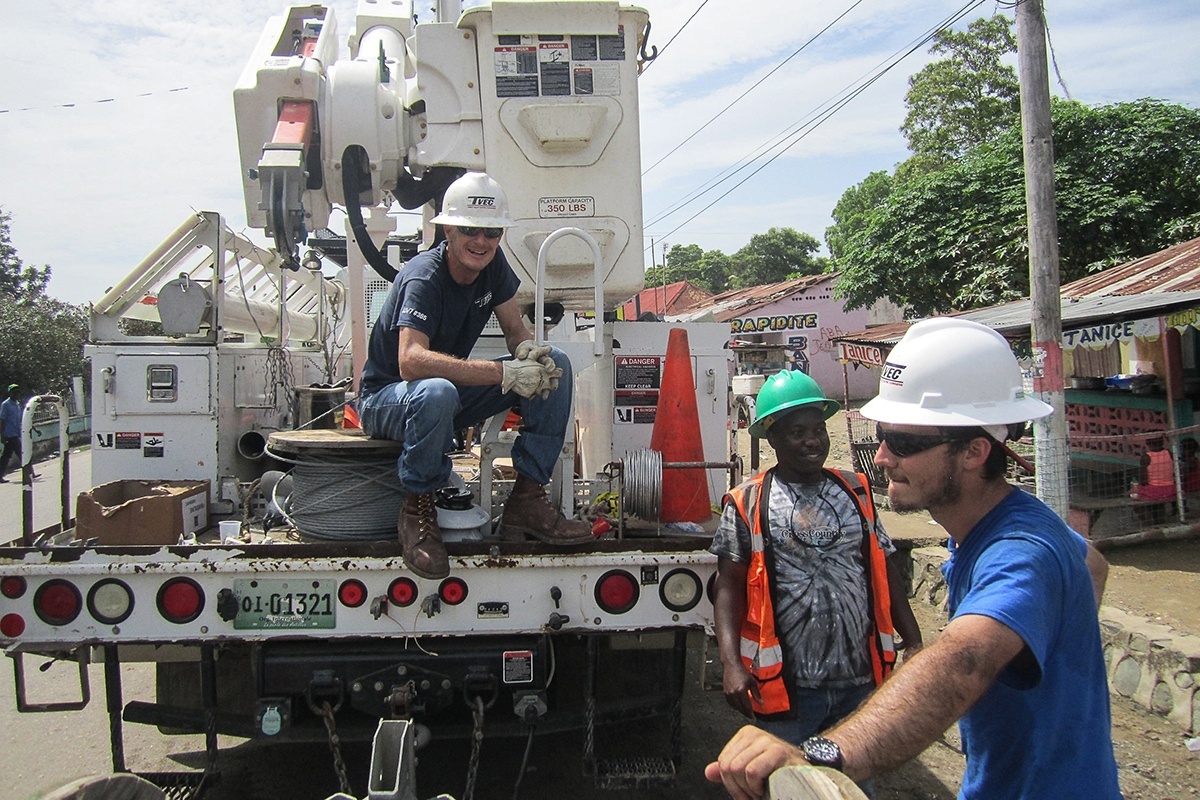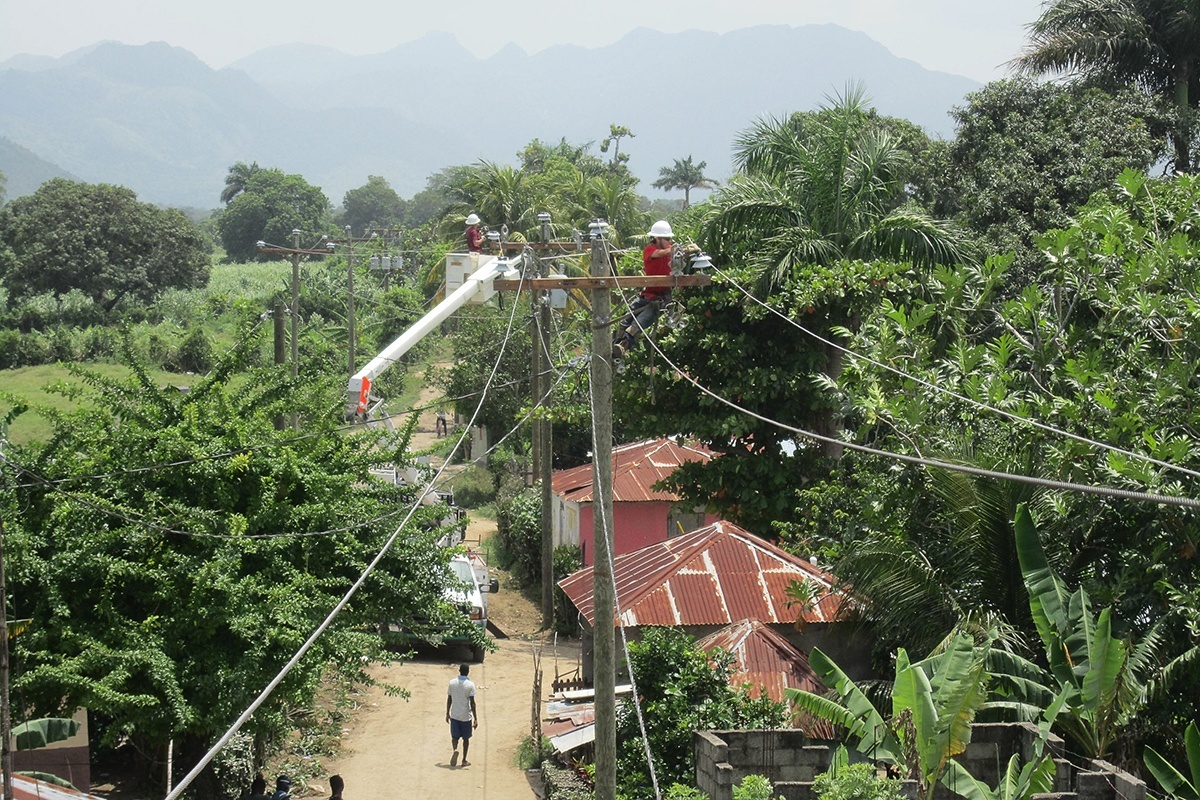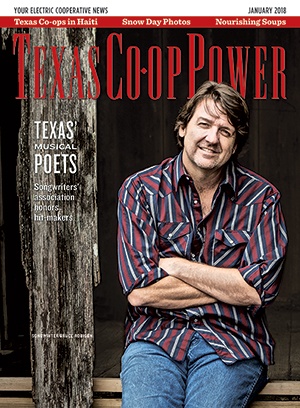Texas electric cooperatives have a long history of collaborating with NRECA International, formed by the National Rural Electric Cooperative Association to bring electricity to communities in need. Over the past five years, 20 Texas co-op lineworkers have traveled to northern and southwestern Haiti with the organization.
In the southwestern town of Côteaux, Texas volunteers worked with an NRECA International team to help establish Haiti’s first electric co-op. This area was devastated in October 2016 by Hurricane Matthew, which severely damaged the power system that had gone live just 13 months earlier. Efforts are underway to re-establish the system and help the community rebuild.
Since 1962, NRECA International has provided safe and reliable electricity access to more than 126 million people in 43 countries across Latin America, Southeast Asia and sub-Saharan Africa. This work is supported by more than 300 American electric co-ops through donations and volunteer aid from hundreds of co-op directors, linemen, engineers, managers and other employees who provide communities with training and first-time access to electricity.
In Caracol, a town in northern Haiti, the Texas volunteers worked alongside NRECA International staff on the Pilot Project for Sustainable Electricity Distribution, funded by the U.S. Agency for International Development. Every day, the lineworkers set out to extend power lines from the PPSELD generation station. This is the only utility in Haiti that provides reliable electricity 24 hours a day. With the help of American volunteers, NRECA International eventually will connect 10,000 consumers in the area—about a third of the region’s population—with electricity.
Most recently, ahead of Hurricane Irma striking Haiti in September 2017, NRECA International staff in Caracol shut down the PPSELD power plant, boarded up the offices, moved vehicles and materials to the utility’s warehouse and sheltered in place. The hurricane skirted the northern edge of the island, and damage was limited to a fallen tree that took down a line.
Volunteers who travel to Haiti through NRECA International work side by side with Haitian lineworkers, who gain knowledge, expertise and skills from the Americans. As with all co-op line-workers, the family bonds know no borders.
Texas Co-op Teams
When Mike Grisham from HILCO Electric Cooperative agreed to volunteer his skills and expertise in Haiti, he expected culture shock and difficult working conditions in addition to missing his family. But he did not expect to make deep connections with the local lineworkers, nor the way their families and communities would become a part of his own family and community, creating a bond that would last long after he returned to Texas.
In February 2016, Grisham got on a plane with Clayton Thompson, also from HILCO, and Brannon Nichols from Homer Electric Association in Alaska. Once in Haiti, it didn’t take long for them to understand that the local lineworkers faced many challenges to live what Americans would consider normal lives.
“They lacked basic needs like clothing, food and a decent place to live with their families,” Grisham said. “But despite it all, their positive outlook on life was amazing.”
Trinity Valley Electric Cooperative joined the project, and Josh Lathem, Adam Wolking and Zach Pollett put their knowledge and expertise to work in Haiti. The Haitian linemen did not have much hands-on experience because PPSELD was only four years old.
“Their most senior guy has four years of experience,” Lathem said. “We have a little more than 30 years of experience between us, so there was just a lot that we were able to do and to show them.”
The transfer of knowledge is critical for this young utility in Haiti to be sustainable and successful. The HILCO and Trinity Valley linemen shared countless tips and techniques on the job site and spent several hours of their last day teaching an impromptu class in basic electricity for a group of the local workers.
“Linemen over there are like rock stars,” Lathem said. “They’re the ones who turn the lights on. It was amazing to watch them unload off a truck, getting high-fives from the adults and kids.”
Challenging work conditions are the norm in Haiti, and the availability of supplies is unpredictable. Despite language barriers, both the HILCO and Trinity Valley volunteer crews managed to fit right in with the local team, and all worked well together.
Arm-Wrestling Diplomacy
Grisham and his fellow linemen were celebrated at special community gatherings, where food and drink were offered as a form of gratitude and fellowship. It was at the first gathering after the first week of work that Haitian lineworker Luco challenged Grisham to a friendly arm-wrestling competition. Before a raucous, cheering crowd, Grisham won, and a friendship between the two men was born.
“I realized then that I want to help Luco and the other linemen live better lives,” Grisham explained. “Many co-ops are already supporting the work NRECA International does to help communities get electricity, but I want to help the people who do the work, like Luco.”
When Grisham returned to Texas in late February 2016, he started a GoFundMe page to help Luco. His goal is to raise $5,000 to help the Haitian linemen and their families buy food and clothing. Now that these communities have electricity, some of the linemen also have bigger dreams—to break out of the poverty cycle.
“Luco told me he wants to build a house for his wife and baby to live in, and that it’s going to cost him U.S. $1,800,” Grisham said. “He’s already saved about half of what he needs, and he asked for help. By our standards, that’s not much at all to build a house, but it’s a luxury to them.”
Today, Luco’s house is under construction and on track for completion early this year. As money comes in through the GoFundMe page, Grisham transfers the funds to his Haitian friends. Using Google Translate to overcome language barriers, they communicate regularly via the smartphone messaging app WhatsApp.
Trinity Valley EC’s contribution didn’t end with power lines. Along with their skills and hard work, the linemen also brought with them three large bags of personal hygiene items for the families of the Haitian linemen. All were donated by students at Trinity Valley Community College in Terrell through the Phi Theta Kappa honor society. While items like toothpaste, deodorant and soap are available, they’re often too expensive for many Haitians to buy; they make about $5 a day.
“Deodorant can cost up to $20,” Lathem said. “When I opened one of the bags to show the head lineman, he sat down and nearly cried. We let him distribute one bag to his guys, and it was a really big thing for them.”
On to Bolivia
Texas co-ops have mobilized again—this time to Bolivia, under the leadership of Mid-South Synergy CEO Kerry Kelton, a longtime supporter of NRECA International. A Texas team of volunteer linemen from Mid-South, United Cooperative Services, CoServ, and Pedernales, Bartlett and Bluebonnet electric cooperative traveled to the northern part of the country in November to bring electricity to a few hundred people who live without it.
“Nothing illustrates Cooperation Among Cooperatives better than six Texas cooperatives partnering with Texas material suppliers to bring power to the people of Bolivia,” Kelton said.
It’s common to hear stories of how underserved communities benefit from reliable electricity made possible by NRECA International and its volunteers. With the growth of interest and support from American electric co-ops to help NRECA’s international work, more volunteers are given the opportunity to provide the help that is sorely needed in these communities.
But the results are clear: Cultural bridges that extend beyond the construction of power lines can connect worlds and fill communities with hope and friendship.
Zuraidah Hoffman is communications manager for NRECA International.
